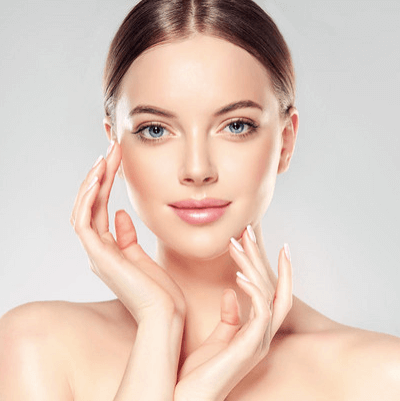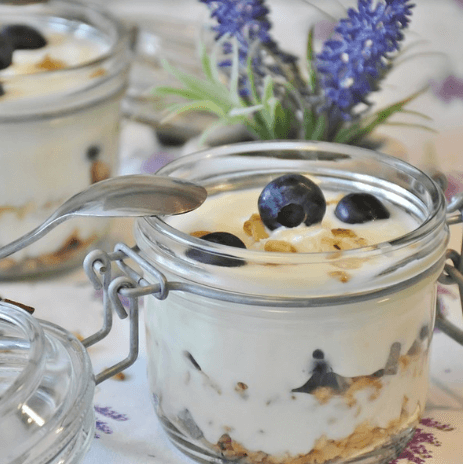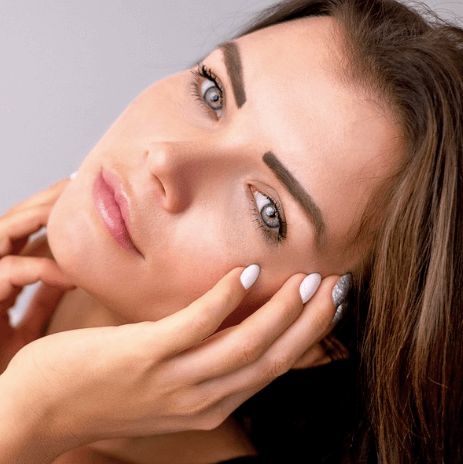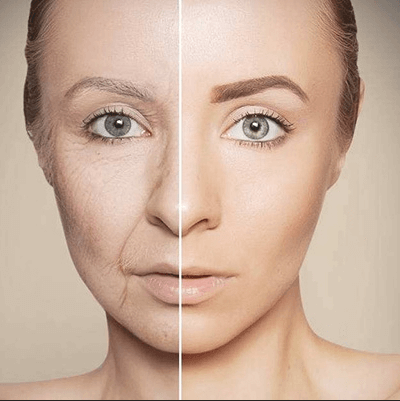Meta Description: Discover the top anti-aging foods for your skin and how they can improve your skin health and reduce the appearance of wrinkles. Learn how to eat your way to a more youthful appearance.
Fast Facts

● Certain foods are packed with antioxidants that can help protect against damage from free radicals, which can harm skin cells and contribute to aging.
● Eating a diet laden with fruits and vegetables can help improve skin health and reduce the appearance of wrinkles.
● Foods high in omega-3 fatty acids can help reduce inflammation, which may be linked to skin aging.
● A high-fiber diet can help improve digestion and may also help regulate blood sugars, which can help prevent premature skin aging.
We all search for that one miracle that will stop us from looking our age, don’t we?
Unfortunately, as we age, our skin loses its elasticity, and those pesky wrinkles, fine lines, and other signs of aging start to appear.
While there are countless anti-aging creams, serums, and treatments available, the secret to
youthful skin lies in our diet
.
In this article, I’ll explore the science behind aging, the benefits of an anti-aging diet, the best anti-aging foods for the younger-looking skin you are searching for, and how to incorporate them into your daily meals.
The Science Behind Aging
Unfortunately,
skin aging
is a natural process as we age.
Our skin comprises collagen and elastin fibers, which keep it firm and youthful-looking. However, as we age, our skin’s natural production of collagen and elastin decreases, causing it to become thinner, drier, and more prone to wrinkles and fine lines.
In addition, exposure to UV radiation, pollution, and smoking can also damage our skin cells and accelerate aging.
Benefits Of Incorporating Anti-Aging Foods Into Your Diet

While it may seem like something we should all know, incorporating anti-aging foods into your diet can benefit your overall health and well-being, including:
Reduced Inflammation
Many anti-aging foods, such as fatty fish, leafy greens, and berries, are rich in antioxidants that can help
reduce inflammation
throughout the body, which may be linked to many chronic diseases.
Improved Cognitive Function
Certain anti-aging foods, such as blueberries and nuts, are rich in compounds that can help improve cognitive function and lower the risk of age-related cognitive decline.
Healthier Skin
Many anti-aging foods, such as tomatoes, sweet potatoes, and dark chocolate, are rich in nutrients that can help promote healthy skin, such as vitamins A, C, and E.
Lower Risk of Chronic Conditions
Eating a diet full of anti-aging foods has been linked to a lower risk of chronic conditions such as heart disease and various cancers.
Increased Energy and Vitality
Many anti-aging foods, such as leafy greens and fatty fish, are rich in nutrients that can help boost energy levels and promote overall vitality and well-being.
What Are Anti Aging Foods?

Anti-aging foods are the holy grail of foods. They are naturally rich in nutrients, vitamins, minerals, and antioxidants that help slow down the aging process and promote overall health and well-being.
These foods are typically whole, unprocessed, and nutrient-dense, including:
● Fruits
● Vegetables
● Whole grains
● Lean proteins, and
● Healthy fats.
These foods are believed to help reduce inflammation, protect against damage from free radicals, boost collagen production, and improve skin health. All of these can help slow down the visible signs of aging and promote a more youthful appearance.
There are many anti-aging foods, but here are 12 exceptionally nutrient-dense that offer a wide range of benefits:
1.
Blueberries:
These low-calorie fruits are packed with antioxidants that can help protect against
oxidative stress
and inflammation linked to aging.
2.
Broccoli:
This cruciferous vegetable is rich in vitamins C and K, fiber, and antioxidants, which can help support healthy digestion and reduce the risk of chronic diseases.
3.
Fatty Fish:
Salmon and mackerel, for instance, are rich in
fatty acids
, which may help reduce inflammation, support healthy brain function, and protect against skin damage.
4.
Leafy Greens:
Spinach and kale specifically are packed with vitamins A and C and powerful antioxidants, which may protect against free radical damage and support youthful skin.
5.
Nuts and Seeds:
Almonds, walnuts, chia seeds, and other nuts and seeds are rich in healthy fats and full of fiber, and protein, which can help regulate blood sugar levels, support heart health, and reduce inflammation.
6.
Olive Oil:
A healthy fat is rich in monounsaturated fatty acids, which may help reduce inflammation, support healthy cholesterol levels, and protect against skin damage.
7.
Red Grapes:
Red grapes are packed with antioxidants, including resveratrol, which can help protect against damage from free radicals and support healthy heart function.

8.
Sweet Potatoes:
These sweet root vegetables are rich in vitamins A & C, as well as fiber, which can help support healthy digestion, regulate blood sugar levels, and reduce inflammation.
9.
Tomatoes:
These juicy fruits are rich in
lycopene
, an
an antioxidant that can help protect against damage from free radicals and support healthy skin.
10.
Dark Chocolate:
This delicious treat is rich in flavonoids, which can help reduce inflammation, support healthy blood flow, and protect against skin damage.
11.
Green Tea:
This antioxidant-rich beverage is believed to reduce inflammation, support healthy brain function, and protect against skin damage.
12.
Yogurt:
This probiotic-rich food can help support healthy skin and digestion, boost immune function, and protect against age-related cognitive decline.
Side Effects Of Anti Aging Foods
While anti-aging foods are generally considered safe and beneficial for most people, there are some potential side effects:
1.
Digestive Issues:
Some anti-aging foods, such as broccoli and beans, can cause digestive issues such as bloating, gas, and constipation in some people.
2.
Allergic Reactions:
Some foods, such as nuts and seafood, can cause allergic reactions in some people.
3.
Interference with Medications:
Certain anti-aging foods, such as grapefruit, can interfere with the absorption and effectiveness of certain medications.
4.
Blood Sugar Imbalances:
Some anti-aging foods, such as sweet potatoes and fruit juices, can cause blood sugar imbalances in some people, particularly those with diabetes or insulin resistance.
5.
Overconsumption:
While anti-aging foods are generally healthy in moderation, consuming too much of certain foods, such as dark chocolate, can lead to weight gain and other health issues.
It’s essential to consume anti-aging foods in moderation and pay attention to your body’s response to them to avoid potential side effects.
Benefits of an Anti-Aging Diet

While we may be unable to halt the aging process altogether, we can slow it down by incorporating anti-aging foods into our diet. Anti-aging foods are rich in vitamins, minerals, and antioxidants, which help to nourish our skin cells and protect them from damage.
By eating a diet rich in these foods, we can help reduce the appearance of wrinkles, fine lines, and other signs of aging and achieve a more youthful, radiant complexion.
Who Is A Good Candidate For An Anti Aging Diet?
An anti-aging diet is generally considered safe and beneficial for most people. Still, specific individuals may benefit from it more than others. Good candidates for an anti-aging diet include:
1.
Older Adults:
As we age, our bodies are at higher risk of oxidative stress and inflammation, which can contribute to the aging process. An anti-aging diet rich in antioxidants and anti-inflammatory compounds can help mitigate these effects and promote
healthy aging
.
2.
Individuals with Chronic Diseases:
Many chronic diseases, such as heart disease, diabetes, and cancer, are linked to oxidative stress and inflammation. An anti-aging diet can help reduce these risk factors and improve overall health outcomes.
3.
Individuals with Poor Nutritional Habits:
If you eat processed foods, sugar, and unhealthy fats, transitioning to an anti-aging diet can help improve your overall health and well-being.
4.
Individuals with Skin Concerns:
Certain anti-aging foods, such as leafy greens, berries, and fatty fish, can help improve skin health and reduce the signs of aging.
5.
Individuals Looking to Improve Overall Health:
Even if you don’t have any specific health concerns, incorporating anti-aging foods into your diet can help promote positive overall well-being.
Incorporating anti-aging foods into one’s diet can benefit anyone, as they are generally healthy and nutrient-dense. However, it’s always a good idea to consult a healthcare professional before making bold diet changes.
Faq’s About An Anti-Aging Diet
1.
Is an Anti-Aging Diet Suitable for Vegetarians or Vegans?
Yes, an anti-aging diet can be adapted to suit a vegetarian or vegan lifestyle. Plant-based proteins such as beans and pulses can be included.
2.
Can an Anti-Aging Diet Help Prevent Chronic Diseases?
Yes, an anti-aging diet has been linked to a smaller risk of chronic diseases such as heart disease, diabetes, and cancers.

3.
Are There Any Risks Associated with an Anti-Aging Diet?
An anti-aging diet is generally considered safe and beneficial for most people. If you have any health concerns or take medications, please consult a healthcare professional before making significant dietary changes.
4.
How long could it take to see results from an anti-aging diet?
The benefits of an anti-aging diet can vary depending on the individual and their specific health concerns. Some people may see improvements within a few weeks, while others may take longer to see noticeable changes.
5.
Is an anti-aging diet expensive?
An anti-aging diet does not have to be costly. Buying in-season produce, shopping at local markets, and preparing meals at home can help save money while still providing fresh, nutrient-dense meals.
Conclusion and Final Thoughts
Incorporating anti-aging foods into our diet is a simple and effective way to nourish our skin from the inside out and achieve a more youthful appearance.
By eating a diet rich in vitamins, minerals, and antioxidants, we can protect our skin cells from damage, reduce the appearance of wrinkles and fine lines, and achieve a radiant, youthful complexion.
So, start incorporating these anti-aging foods into your daily meals, and watch your skin glow with health and vitality!

 By myulikeadmin
By myulikeadmin



